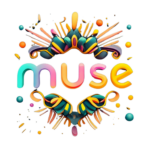In the fast-paced and ever-evolving world of digital marketing, staying ahead of the curve is imperative for businesses seeking to connect with their target audience effectively.
The advent of innovative marketing technologies has transformed the way companies approach their marketing strategies, offering unprecedented tools and solutions to enhance engagement, personalize interactions, and drive measurable results.
Artificial Intelligence and Machine Learning
Artificial Intelligence (AI) and Machine Learning (ML) have emerged as powerful forces in innovative marketing technology. These technologies enable businesses to analyze vast amounts of data, identify patterns, and predict customer behaviors.
AI-driven algorithms can automate tasks such as personalized content recommendations, customer segmentation, and even chatbot interactions, leading to more efficient and targeted marketing campaigns.
Predictive Analytics for Customer Behavior
AI-powered predictive analytics can analyze historical data to forecast future trends and customer behaviors. This allows marketers to proactively tailor their strategies to align with upcoming trends, ensuring a more responsive and forward-thinking approach.
Augmented Reality (AR) and Virtual Reality (VR)
AR and VR technologies are no longer confined to the realms of gaming and entertainment; they are making significant waves in the marketing world. Brands are leveraging AR and VR to create immersive and interactive experiences for their audiences.
From virtual product try-ons to augmented reality advertisements, these technologies enhance user engagement by providing unique and memorable interactions.
Virtual Product Try-Ons
Retailers are using AR technology to allow customers to virtually try on products before making a purchase. This not only enhances the online shopping experience but also reduces the likelihood of returns, as customers have a more accurate representation of how the product will look on them.
Voice Search and Smart Speakers
The rise of voice-activated technology has given birth to a new frontier in search engine optimization and marketing. With the increasing popularity of smart speakers like Amazon’s Alexa and Google Home, businesses are optimizing their content for voice search.
Marketers need to adapt their strategies to accommodate the conversational nature of voice queries, emphasizing the importance of natural language and context in content creation.
Voice-Optimized Content
Brands are creating content that aligns with the way people speak rather than type. This includes using long-tail keywords and providing concise, direct answers to common voice search queries. Voice-optimized content ensures that businesses remain visible and relevant in the era of smart speakers.
Chatbots and Conversational Marketing
Chatbots powered by AI are revolutionizing customer interactions. These automated systems can provide instant responses, answer queries, and guide users through various stages of the customer journey.
Conversational marketing, facilitated by chatbots, enables businesses to engage with customers in real time, offering personalized assistance and recommendations.
AI-Powered Customer Support
Chatbots are being deployed in customer support to provide immediate assistance. By understanding customer inquiries and offering relevant solutions, these AI-driven chatbots enhance the overall customer experience, ensuring round-the-clock support and quick issue resolution.
Blockchain in Marketing
Blockchain technology is gaining traction in marketing for its ability to enhance transparency, security, and trust. Blockchain ensures the integrity of data, reducing the risk of fraud and enabling marketers to verify the authenticity of transactions.
This innovation is particularly relevant in influencer marketing, where brands seek to ensure the legitimacy of influencers’ audiences and engagement metrics.
Transparent Supply Chains
In the realm of digital advertising, blockchain can be used to create transparent supply chains, allowing advertisers to trace the journey of their ads and verify that they are reaching their intended audiences. This level of transparency helps in building trust between advertisers and publishers.
Conclusion
Innovative marketing technology is driving a paradigm shift in the way businesses approach digital marketing. From the power of AI and machine learning to the immersive experiences offered by AR and VR, these technologies are empowering marketers to create more personalized, efficient, and engaging campaigns.
As the digital landscape continues to evolve, businesses that embrace and adapt to these innovations will position themselves as industry leaders, connecting with their audience in once unimaginable ways. The key lies in staying informed, experimenting with new technologies, and leveraging the tools that align with the unique needs and goals of each business.

